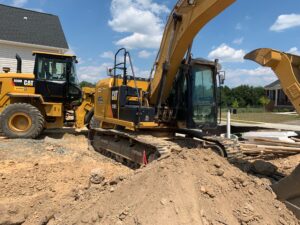
TIME MANAGEMENT
On time and under budget, that is the mantra of our industry. Construction projects are capital intensive, that means every second counts particularly when we are spending other people’s money. As a construction manager we are tasked with managing time. Not just our own time but the time of hundreds of workers on the job site as well as workers behind the scenes at the supply houses and administration teams for our trade partners. We control the schedule and the clock. But, before we can attempt to manage other people’s time, we need to be able to manage our own time.
Understanding time management is the most critical skill a construction manager can possess. Time management is the act of managing yourself. We can not control time, but we can control how we spend it. Understanding how we spend our time and what is truly important will dictate how well we manage our professional and personal lives. The Builder Tactics training academy offers the tools you need to manage yourself and make the best use of the time you have. Some of the skills we will teach you include, task management, understanding critical paths, identification or your time wasters and how to stay organized.
Remember, we set the example for our trade partners, we lead people, we don’t manage them. Understanding how we manage our own time is a critical skill in any management position. After all, we need to be able to juggle multiple tasks and make sure our critical path is being followed.
No construction manager can survive without time management skills. One of the most important aspects of managing construction projects is maintaining the production schedule. This is a huge task and requires knowledge of the job, the trade workers capabilities and construction sequencing or knowledge of what comes first, second and so on to produce the final product. Without being able to manage your own time you will not be able to manage other people’s time and that is what schedule maintenance is all about.
Want to Learn More? Purchase our Construction Management Training Manual



